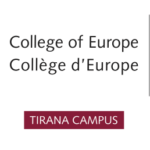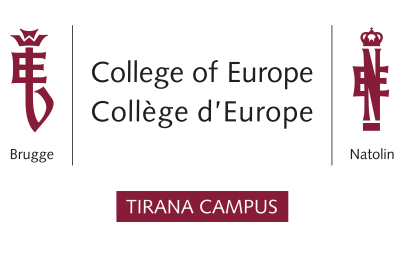By raising the Beleri issue in Brussels, Athens has not raised a bilateral Greek-Albanian issue but an absolutely internal, serious and important issue of the Albanian state.
By GENC POLLO[1]
Ten days ago, German Chancellor Olaf Scholz, standing on the side of visiting Greek Prime Minister Kyriakos Mitsotakis, told the media that he was against the bilateralization of the European Union enlargement process.
The chancellor was apparently referring to the non-signing by the ambassador of Greece to the EU of a circular letter authorizing the European Commission to open negotiations with Albania for some clusters and chapters of the membership draft/treaty. Since this step requires unanimity from all the member states, the Commission cannot act. As it is known, the Beleri case has triggered Athens to harden its stance.
1-Identity vetoes
Chancellor Scholz is right. The EU member states have often abused their veto in Brussels as they dealt with issues with neighbouring countries. Greece started this game in the early 90s when an adventurous foreign minister declared Macedonia an “enemy” that was stealing the Greek name, history and culture. Although in private conversations politicians and friends of mine admitted this approach was useless, the Greek public opinion was enthralled making it difficult to compromise and reach an agreement (it happened only in 2018). So with this issue, for a quarter of a century, Greece blocked the path of membership of (North) Macedonia into NATO and the EU.
Bulgaria, in various intervals, did the same to Macedonia. Sometimes with the claim that the Macedonians denied that they were Bulgarians and later with the contradictory claim that they didn’t recognise the Bulgarian minority. A few years ago, this issue was resurrected by a populist-nationalist president incensing public opinion and most parliamentary parties had to follow willy-nilly.
Wise personalities who considered this extremism absurd were not listened to anymore. Also Skopje did not remain idle, provoking Greece by erecting neo-Hellenistic statues and Bulgaria by rebroadcasting the films of the Yugoslav era that shows Bulgarians as barbaric Mongols.
But, at the end of the day, there remains a veto with negative consequences for the region and Europe and motivated by identity and historical-cultural issues that are incomprehensible outside the region.
2- Material vetoes
But the bilateral veto is a European sport for other EU countries as well. Except state motives are more concrete and material. For example, Slovenia blocked Croatia’s membership for several years because they wanted a favorable agreement on the maritime border in the Piran Bay. Slovenia relented when Croatia accepted international arbitration on the matter.
Likewise, the Czech Republic in 2014 threatened to veto Albania’s candidate status if Tirana didn’t withdraw from the international arbitration on the dispute with CEZ (a Czech state-owned power distribution operator that bought the Albanian counterpart and had issues) and did not accept their terms. Although in the arbitration the chances of winning were high, the Rama government caved in.
A year later, the Supreme State Audit Office found that this agreement was illegal, it cost the state 479 million euro in damages and filed a criminal complaint against the minister in charge (of course nothing happened). A bizarre aspect of this agreement was the obligation of the Albanian side to under no circumstances file criminal charges against the Czech personnel of CEZ Albania: neither for corruption nor for anything else. This type of amnesty is not only immoral but also clearly unconstitutional. For the sake of the “European cause”, the Rama government did not mind the tax money wasted or the constitutionality.
The reasons for the veto in the above and other similar cases can be fair or unfair, reasonable or exaggerated, ethical or selfish. Be that as it may, the use of the European veto for issues unrelated to the EU membership integration process is unfair, exaggerated and selfish. Therefore Mr. Scholz and many like him are right when they speak out against “bilateralization”
3-Is the Beleri case a genuine Albanian-Greek bilateral issue?
If we refer to the typology of the above cases Athens’ motivations seem different
– it is not claiming that Albania is appropriating its history (in fact, the mother of Alexander the Great of Macedonia was a princess from the Molossian tribe, cousins with the Illyrians, but we have not officially claimed that great conqueror was (half) Albanian);
– it is not pretending that we are Greeks and that Albanian is a dialect of Greek (we live in the time of a Facebook infatuation about the Pelasgians a common linguistic roof, but fortunately this has not yet become an argument for diplomacy);
– it is not claiming to make the issue of the maritime border with Albania a precondition in the European Union process (this has been a strictly bilateral process that for 15 years has gone through agreements, their cancellations, fruitless negotiations and agreement on international arbitration);
– is not insisting that our state pay compensation for such a Greek company (it would not be surprising, but this is not the case).
Beyond these typical bilateral cases, one should be noted that Athens is not using its veto with regard to the Greek minority, which theoretically would have a legal basis (the Copenhagen criteria, which must be met by the candidate states for the EU, speak expressly about the rights of minorities) while for instance Budapest signals that it may vote against the opening of Ukraine’s EU membership negotiations precisely because of the situation of the Hungarian minority in Transcarpathia.
As I have argued in previous articles, Beleri is a clear case of violation of the rule of law, of democracy and of civil/political rights; Fredi Beleri himself is a political prisoner, the first political prisoner in the 21st century in Albania and therefore a dangerous precedent (looking at the developments of the last month, it should be noted with sadness that he is no longer the only political prisoner).
Beleri’s only formal connection with Greece is his double Albanian and Greek citizenship. But Beleri’s opponent in the municipal race was also a dual citizen of the two countries.
4-Rehabilitation of the veto
By raising the Beleri issue in Brussels, Athens has not raised a bilateral Greek-Albanian issue but an absolutely internal, serious and important issue of the Albanian state. Greece is a small country in the EU where the influence is seen in proportion to the size of each member state. The Greek veto, due to the past experience with Skopje, can be seen with suspicion in Brussels as the shepherd who falsely cried wolf. But Greece’s intervention seems to fill the vacuum created by the inertia, silence and even blindness of the European Commission. Precisely the Commission, this primary body of the European Union with the functional task of verifying the Copenhagen Criteria in candidate countries such as Albania, was silent until November about Beleri while condemning arbitrary arrests in Azerbaijan and elsewhere. The Commission’s “Albania 2023” report, published this month, presents the Beleri case briefly and formally correctly, but surprisingly not in the chapter on democracy and fundamental rights, but in the one on relations with neighbours (for the sake of truth, we need to say that for the first time in this decade the report has two or three timid paragraphs describing the violation of the parliamentary rights of the opposition; this is a welcome development, although ten years late).
This attitude of the European Commission may have several reasons. But the most obvious is the need to present as a success story the justice reform in Albania where the Commission invested considerable political and financial capital; with the best intention of course. Although various diplomats privately admit that the reform turned out to be very problematic, the bureaucrats of the Commission don’t have the institutional interest and moral courage to assert that the post-reform judicial bodies produce political prisoners; which the old justice, despite its sins and weaknesses, did not do since 2000. In order to complete the EU framework with positive notes, it is necessary to say that the European Parliament and the main political party there have taken a clear and proper stance on the Beleri case.
We can also talk about the silence of two European organizations with a focus on fundamental rights and which have offices in Tirana: the Council of Europe and the OSCE have not expressed themselves and this raises questions and invites a debate about their usefulness. It should be added here that the Congress of Local Authorities (within CoE) has denounced Beleri’s arrest and ODIHR (within OSCE) mentions his case in the May 2023 local elections report.
In this context, it is worth considering what could happen in the hypothetical scenario where the Greek government would have taken no interest in Fredi Beleri’s case. The burden of denouncing and fighting this neo-precedent of political imprisonment would remain mainly with the opposition, which is currently like a lone fireman in front of fires in every neighborhood of the city.
The EU and the US, in addition to the above inhibitions, are absorbed by crises, the conflicts in Ukraine and the Middle East as well as other challenges. As a result, they see the Balkans more in the geopolitical prism and less in the democratic one. Therefore it seems to me, even though I am allergic to bilateral vetoes, that the Greek intervention in Brussels on the Beleri issue could have positive consequences as it could force cynical bureaucrats to open their eyes.
And to close with a non-ironic contextualization of an evolution: the prime minister, who in 2014 sacrificed hundreds of million euro of tax money and breached the constitution to get the EU candidate status, was not surprised by the loss of hundreds of millions of euros from the state budget and the violation of the constitution, ten years later he says to hell with EU membership if I can’t grab Himara’ coastal land plots for my “businesspeople”.
This article was written on November 27, 2023.
[1] Genc Pollo is an Albanian former cabinet minister and MP.









